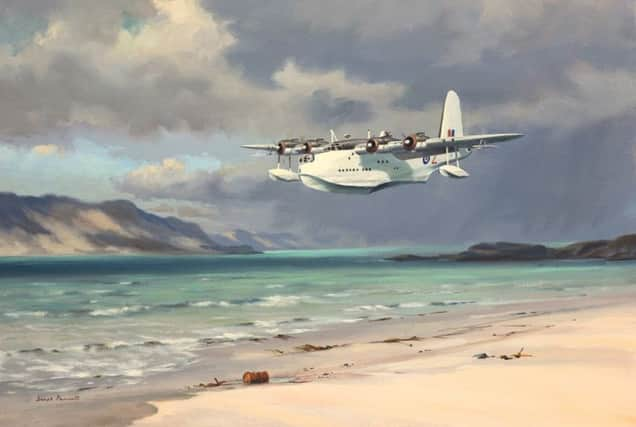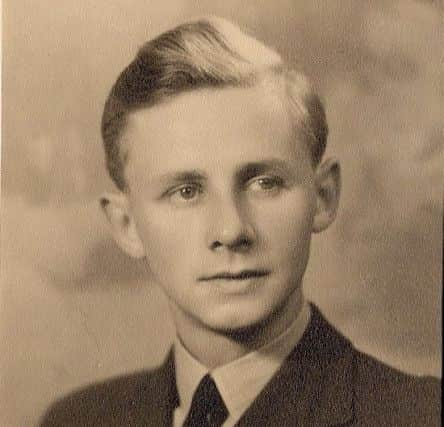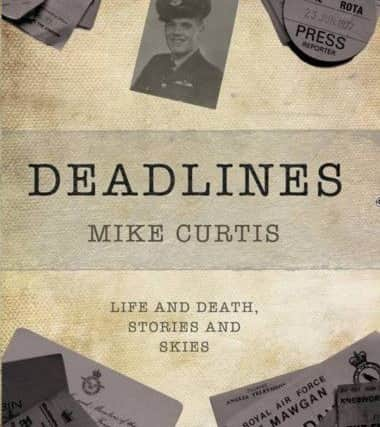The Sunderland hero who penned a heart-wrenching letter to his parents before his death


He is sharing family tales with the Echo and this time, he remembers one of the family who perished in the Second World War.
People can find out more in his book Deadlines, and at www.deadlines101.com.


Advertisement
Hide AdAdvertisement
Hide AdFrancis Wilfred Smith was the son of Mike Curtis’ grandfather’s brother, James Henry Smith and his wife Florence who emigrated to Vancouver in Canada in the 1920s.
At the beginning of the war, young Francis returned from Canada to join the RAF. He was posted to Coastal Command and rose to the rank of Flight Lieutenant. By August 1941, he was captain of a Sunderland flying boat with 201 Squadron in Northern Ireland.
The 25 year old with Sunderland roots was fighting the war in an aircraft named after his home town.
Mike said: “Francis married Rhoda Mary Best from Leigh-on-Sea in Essex. They had a young son who was also called Francis, like my mother’s brother, my grandfather and his father. To be frank, there were a lot of Frank Smiths with Sunderland connections.”


Advertisement
Hide AdAdvertisement
Hide AdOn Thursday February 5, 1942, a Sunderland of 201 Squadron lifted off the waters of Lough Erne. With four engines at full power, it headed due west for The Donegal Corridor (the short aerial corridor from the western edge of Northern Ireland to the coast at Ballyshannon which was a safer area for them to fly in wartime).
The Sunderland crew had 12 on board – three of them with the surname of Smith.
They were Pilot Officer John Barrett, Flying Officer Rodney Smith (an Australian from New South Wales), Flying Officer Henry Kitchin, Flight Sergeants Harold Mason, Norman Clare and John Smith, Sergeants Arnold Rolfe, Hugh Jones, Kenneth Nutt and Gordon Jacobson, and Aircraftsman Eric Hopkinson.
The ranking officer was Flight Lieutenant Francis Smith, in the cockpit. At 22.50, the crew radioed they were returning to base at an estimated time of midnight. The last communication with the aircraft was at twenty minutes past midnight on Friday, February 6. Two hours later, RAF Castle Archdale was notified indirectly by the County Donegal police that an aircraft had crashed into the sea near the island of Rathlin O`Birne.


Advertisement
Hide AdAdvertisement
Hide AdA land search by police and Irish Army personnel found nothing. The RAF scoured the sea from the air but nothing was found.
Irish coastguards reported ‘explosions out at sea’. They estimated the point of impact at nine miles north of Rossan Point and twelve miles west of Dunmore Head. A few pieces of wooden wreckage were eventually washed up but none of the bodies of the 12 men on board were ever recovered.
The crew of the Sunderland have no grave. The official Operations Record Book for 201 Squadron concluded: “All the members of the crew had to be posted as missing. No conclusion could be reached of the cause of the accident.”
Due to his parents` Canadian connections, Flight Lieutenant Smith is commemorated on the Memorial Arch at the West Vancouver Memorial Park. His name also appears in the Book of Remembrance held at the West Vancouver Memorial Library, the Honour Roll displayed at Branch 60 (BC/Yukon) of the Royal Canadian Legion, and also on a bronze plaque at St. Stephen’s Anglican Church in West Vancouver.


Advertisement
Hide AdAdvertisement
Hide AdIt can also be found on Panel 66 at the Air Forces Memorial at Runnymede, just three panels away from the name of Sunderland relative Colin Curtis.
In his will, he left a letter to his parents and his sister, anticipating that he may not survive the war. It read: “You must not grieve for me. After all, that is contrary to all our beliefs. Also it makes me feel so much better now if I know that my death is not going to make you unhappy, but on the contrary, proud that you have a son and brother that died for the cause. I know God is with me, and your thoughts and prayers are with me too.
“If I have not expressed sufficiently my love and affection in my letters to you, it must be by reason of my nature, I suppose, because I bear all the love and affection towards you that any son or brother could bear towards his parents and his sister. So now, goodbye and God bless you, Mother and Dad and Valerie. Love, Frank.”